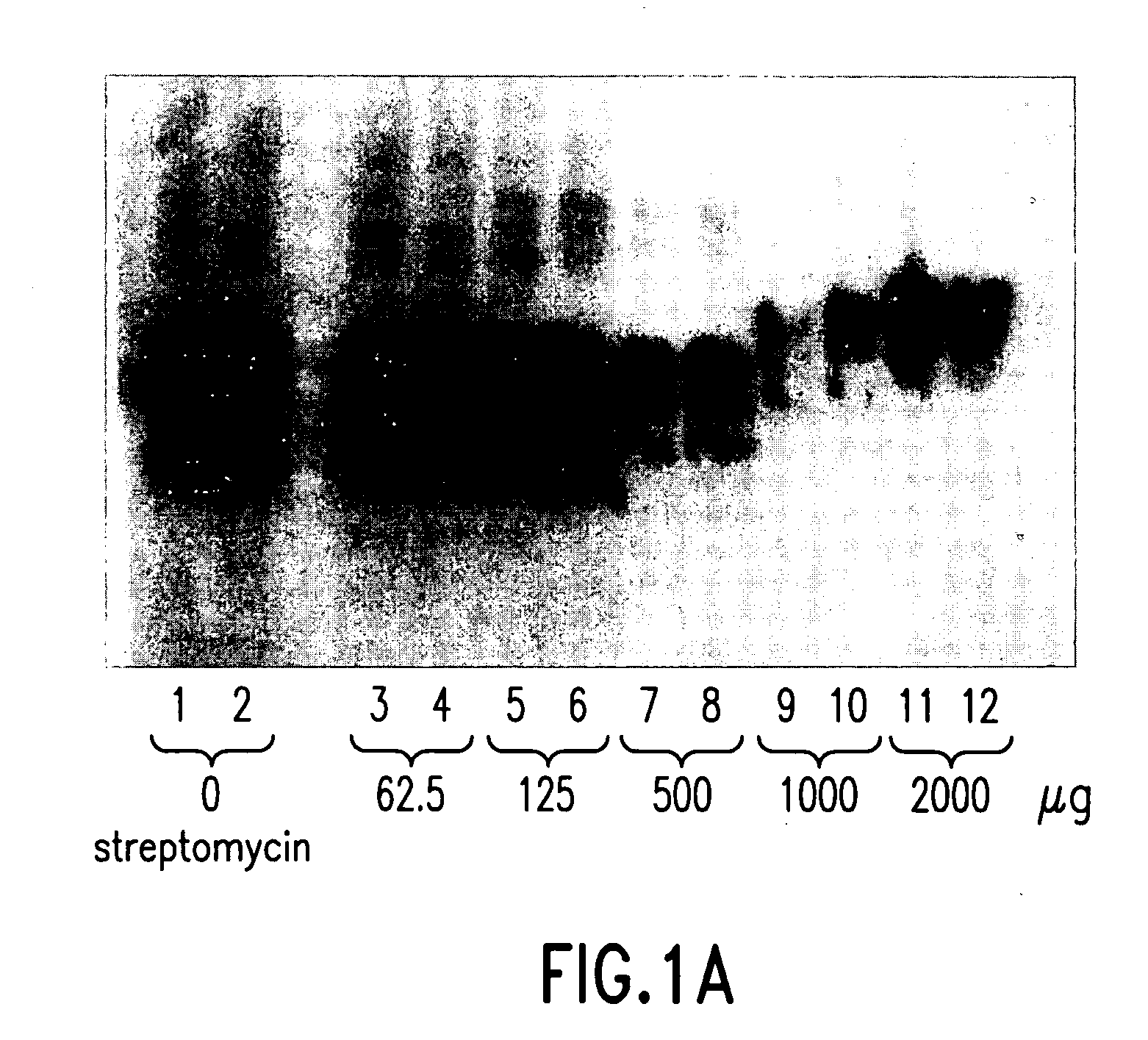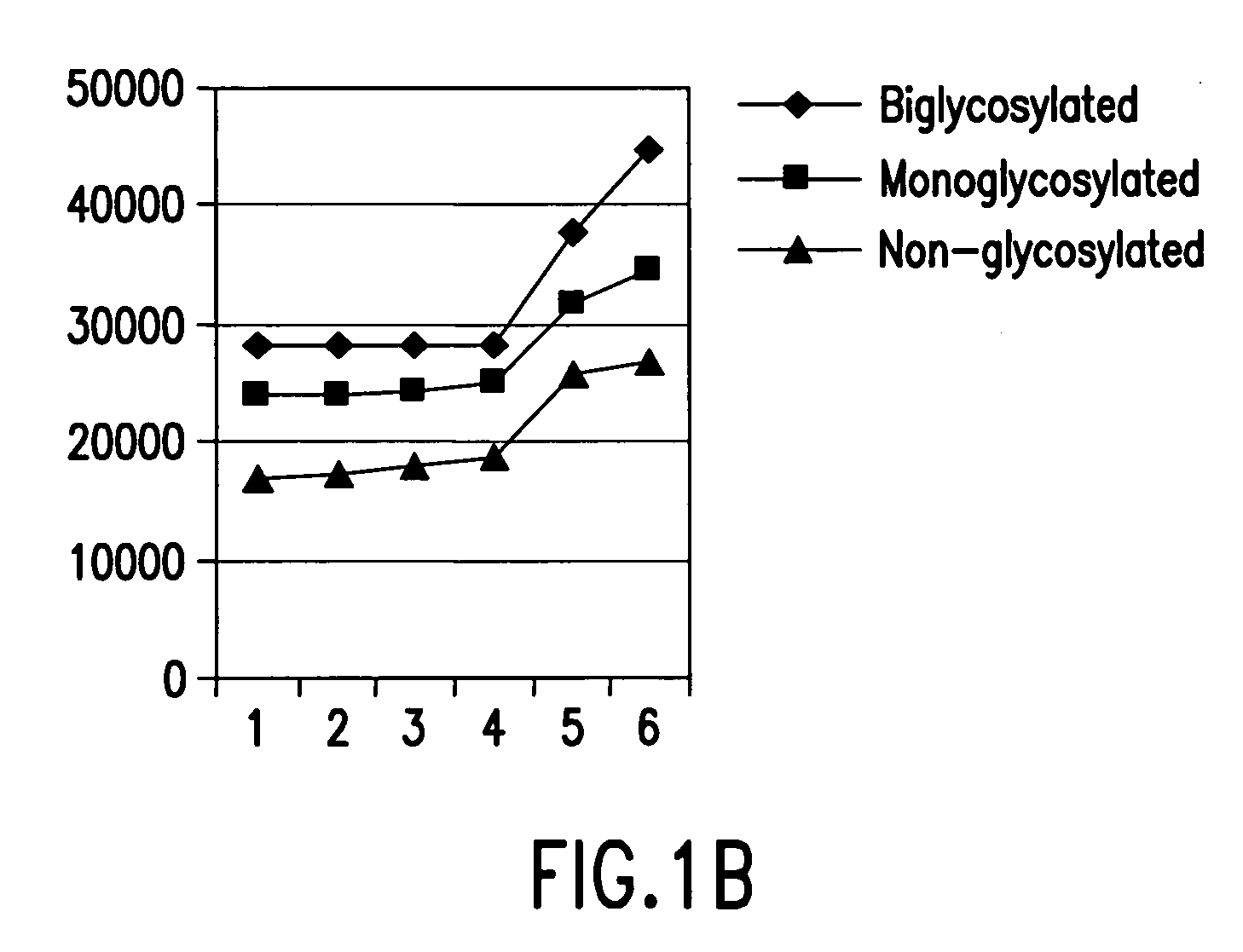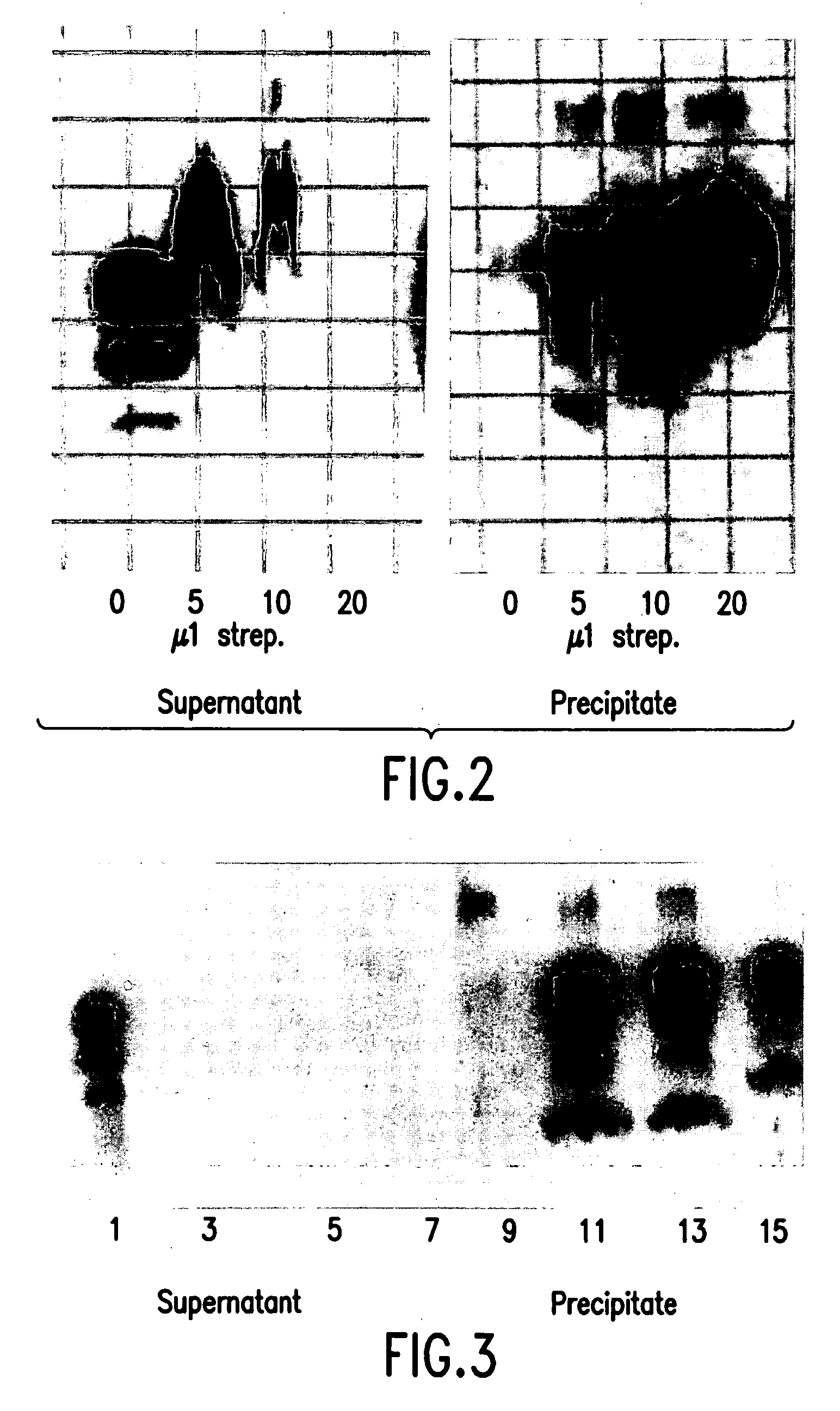Process for detecting PRPsc using an antibiotic from the family of aminoglycosides
a technology of aminoglycosides and enzymes, which is applied in the field of process for detecting prpsc using an antibiotic from the family of aminoglycosides, can solve the problems of slow development, significantly slowing the development of epidemiological models, and difficult detection of prpsc in infected animals
- Summary
- Abstract
- Description
- Claims
- Application Information
AI Technical Summary
Problems solved by technology
Method used
Image
Examples
example 1
[0053] Example 1 relates to FIGS. 1A and 1B concerning trials in which increasing concentrations (0 μg, 62.5 μg, 125 μg, 500 μg, and 2000 μg) of streptomycin were added to constant quantities of PrPsc extracted from the equivalent of 920 μg of sheep brain afflicted with trembling. Then, the mixture was centrifuged. The supernatant was used for immunological detection by Western blot (FIG. 1A) and measurement of the average molecular mass of bands of PrPsc (FIG. 1B). The results show that the increase of the quantity of streptomycin, namely, an addition of 0, 62.5, 125, 500, 1000 and 2000 μg, permits the observation that at the lowest concentrations of streptomycin the band of the non-glycosylated protein is the first to show an increase of the apparent molecular mass. Then, the complexing concerning the band of monoglycosylated protein and, finally, the biglycosylated protein is complexed when the concentration of streptomycin is the greatest.
[0054] The number of streptomycin molec...
example 2
[0055] Example 2 relates to FIG. 2 concerning trials in which increasing concentrations (0 μg, 5 μg, 10 μg, and 20 μg) of streptomycin at 1 g / ml were added to constant quantities of the biological sample prepared as indicated above. In the absence of streptomycin, all the PrPsc bands are identified as being in the supernatant. They are detected progressively and simultaneously in the bottom and in the supernatant. The quantity of PrPsc present in the supernatant diminished progressively while the quantity increased progressively in the precipitates. The addition of 20 μl of streptomycin totally precipitated the PrPsc, that was then detected only in the precipitates.
example 3
[0056] Example 3 relates to FIG. 3.
[0057] The experiment of Example 2 was repeated, but with the same brain sample diluted to 1 / 25 relative to Example 2 and reducing the incubation period to one hour after the simultaneous addition of proteinase K and streptomycin to the brain suspensions. The result is that PrPsc bands were only detected in the supernatant in the absence of streptomycin and in the bottom in the presence of any concentration of streptomycin.
PUM
| Property | Measurement | Unit |
|---|---|---|
| detection threshold | aaaaa | aaaaa |
| temperature | aaaaa | aaaaa |
| temperature | aaaaa | aaaaa |
Abstract
Description
Claims
Application Information
 Login to View More
Login to View More - R&D
- Intellectual Property
- Life Sciences
- Materials
- Tech Scout
- Unparalleled Data Quality
- Higher Quality Content
- 60% Fewer Hallucinations
Browse by: Latest US Patents, China's latest patents, Technical Efficacy Thesaurus, Application Domain, Technology Topic, Popular Technical Reports.
© 2025 PatSnap. All rights reserved.Legal|Privacy policy|Modern Slavery Act Transparency Statement|Sitemap|About US| Contact US: help@patsnap.com



